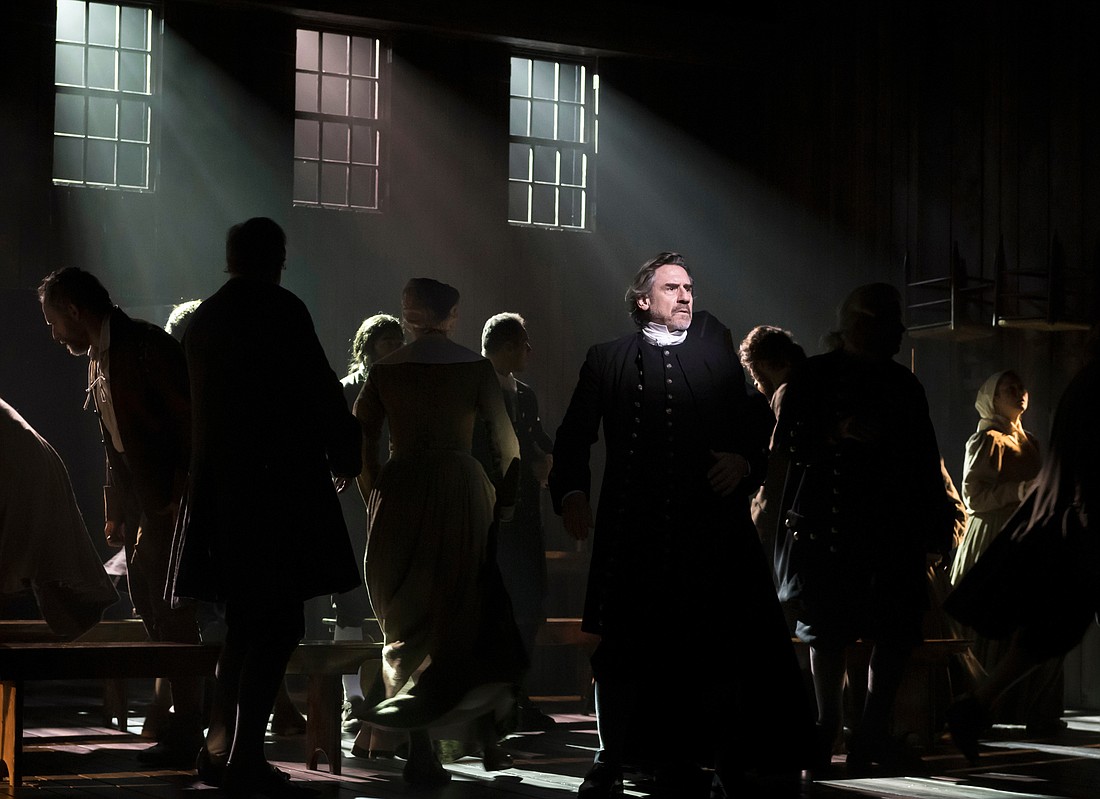- April 19, 2024
-
-
Loading

Loading

Arthur Miller wrote “The Crucible” in 1953. On a literal level, his play revolved around the Salem witch trials of 1692; allegorically, it spoke to Joe McCarthy’s “witch hunt” for secret Soviet agents in the 1950s.
Asolo Repertory Theatre Producing Artistic Director Michael Donald Edwards will be directing the theater company’s upcoming production. As he sees it, Miller’s tragedy still speaks to our paranoid new century — though calling it a “tragedy” might be simplistic. Despite the heartbreak, Miller’s masterpiece is also surprisingly hopeful. Edwards named that hope in our recent conversation.
Quite simply, it’s one of the greatest English plays of the 20th century. And its greatness doesn’t diminish with age. “The Crucible” is relevant to the time in which it was set, to the time in which it was written, and to our time. As Arthur Miller discovered to his great gratification, whenever this play is performed, it resonates as a contemporary piece.
Well, witch hunts come in many forms. In 1692, it was a hunt for literal witches. In the 1950s, there was a hunt for communists. Today, you can draw your own conclusions. But the process of persecution is always quite similar. It begins with official government demonization of those who look, act, or speak differently than the approved class of people. The state can weed out those who are obviously different — but it never stops there.
Exactly. You might seem normal, but what are you like on the inside? You may be normal to all outward appearances, but what do you really think? Inevitably, this leads to an assault on private life. The state appropriates the techniques of terror to accomplish this end, and that’s what we see happening in “The Crucible.” You also see the terrifying effects of government-sanctioned paranoia. The witch hunt starts to fragment the community; it splits into factions and tears itself apart.
Well, Miller is very specific on this point. A group of people sees the witch hunt as an opportunity to acquire land. They benefit from the chaos and dismay this persecution creates — and they do their best to stir it up.
That’s partially it. But there are deeper, irrational motives. It’s also a way of containing the power of female sexuality. That seems to be the greatest fear of most of the major religions. If you think about it, the match that lit the flame was John Proctor’s adulterous affair with Abigail. If someone had simply listened to her and asked, “What’s wrong?” the horrors could’ve been avoided. But people were determined to find a supernatural explanation. And they found it.
Not really. There are no real villains in this play. He’s a scholar, trained at Harvard. He accepts the existence of witches as an objective reality. He’s just doing his job, but he tries to be impartial and fair — and takes a detached, almost scientific approach to his investigation. He has a wonderful line: “We cannot look to superstition in this.” Miller always thought that would get a big laugh, but it never did.
We zeroed in on a specific idea. The setting is a box — a tiny box. The box is an attic, a meetinghouse, John Proctor’s house and a prison cell. It’s the crucible in which everyone is melted down. The people are boxed in; their imaginations are enflamed; they’re surrounded by a vast, mysterious unknown.
Partially. But Miller’s play works on several levels. On one level, it’s all about the hidden agendas of politics and religion. “The Crucible” also explores our basic humanity on a personal level. Despite all of its deep significance, it’s also a thriller — a whodunit with a supernatural element. On every level, the play is a tragedy, though it doesn’t offer a bleak worldview. Miller shows us that the tragic ending is not inevitable. There is hope. People can change. You know how things will turn out. Even so, you’re still hoping they’ll come to their senses right up to the end. Miller, quite intentionally, wants us to feel that hope.
Charity. It’s a thread that Miller has woven throughout “The Crucible.” That struck me quite profoundly as I was preparing for this production. Again and again, he draws our attention to what charity means.
Charity is truly the opposite of paranoia, suspicion and persecution. It’s the opposing force that brings us all together. Charity is the most important value in building any community. I hope to convey its importance to our community, and the cast and everyone on our creative team feels as strongly as I do. If the audiences who leave our production of “The Crucible” recommit themselves to the idea of charity, we’ll have done our job.